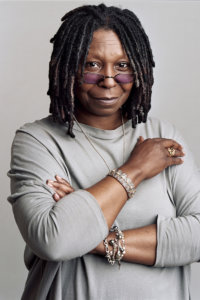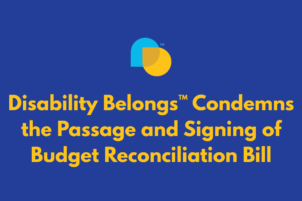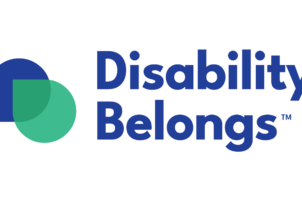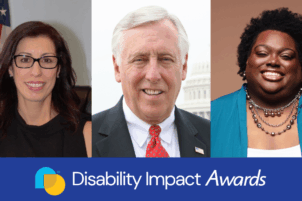Deloris in Sister Act, Whoopi on The View, Shenzi the Hyena in The Lion King—many of us can connect at least one character in a favorite show or movie with Whoopi Goldberg. Not as many can recognize her as a person with dyslexia. Dyslexia is a general term for disorders that involves difficulty in learning to read or interpret words, letters, and other symbols, but does not affect general intelligence. Indeed, singer and activist Harry Belafonte, Shark Tank star and businessman Daymond John and businessman Richard Branson all have dyslexia like Goldberg.
Goldberg is recognized widely for her work. She is one of few people to win an Emmy, a Grammy, an Oscar and a Tony award. However, as a child, Goldberg constantly faced negative feedback. People used to think she was lazy or not trying. She dropped out of school by age 17 and continued her education by going to museums and public lectures, according to the Child Mind Institute.
“What I remember about being a kid was that I felt pretty protected, I wasn’t afraid, and I had a mother who understood after a while that there was something different about the way I learn,” Goldberg recalls in talking with the Child Mind Institute.
One thing that remains about Goldberg is her creative mind, which she tapped into despite not being able to read as easily as others. Her favorite part of school would be story time, where she could listen to the teacher read and picture everything in her head.
Reading scripts and writing books as often as Goldberg does was hard at first with her dyslexia. Like she did in elementary school, Goldberg found it easiest to have someone read to her so she could memorize the lines for her scripts. For her books, she dictates instead of writing before sitting down with an editor to adjust the language.
Fully one-in-five Americans have a disability and polls show that most of them want to work. Yet 70 percent of working-age Americans with disabilities are outside of the workforce.
There are more than 5.6 million African Americans living with a disability in the U.S. Only 28.7 percent of working-age African Americans with disabilities are employed in the U.S. compared to 72 percent of working-age African Americans without disabilities. Goldberg is proof that this does not have to be the norm.
For many of the 1,199,743 black students (K-12) with disabilities in America today, however, the deck is stacked against them. Frequently “invisible disabilities” such as ADHD are not diagnosed and students do not get the supports they need to achieve. Frustrated, they can act out and become suspended. Studies show that when students miss too many days, they get so far behind in class that it can lead to them dropping out of school and entering the school-to-prison pipeline. Today there are more than 750,000 people with disabilities behind bars in America. Indeed, half of all women who are incarcerated in America have a disability. The majorities of them do not have high school diplomas, are functionally illiterate and are people of color.
Overall, only 65 percent of students with disabilities graduate high school compared to 84 percent of students without disabilities. However, only 57 percent of black students with disabilities graduate high school compared to 74.6 percent of black students without disabilities.
Role models such as Goldberg make a big difference in setting high expectations for youth with disabilities. People with disabilities of all backgrounds can be amongst the highest achievers on earth. Harriet Tubman had Epilepsy, actress Halle Berry lives with diabetes, business leader and Shark Tank superstar Daymond John is dyslexic and Stevie Wonder is blind. Each of them is a positive role model for success.
Our nation’s economy is strongest when it is inclusive of the value that diverse talent brings to the workplace. Goldberg is defying statistics as one of the highest paid actresses in Hollywood and a superstar TV host. She has indicated that her career will not be slowing down anytime soon.
“The advantage is that my brain sees and puts information in my head differently, more interestingly than if I saw like everyone else,” said Goldberg.










Enjoyed your piece on Whoopi. Didn’t know that about her. Happened to hear her say something on The View the other day, something about not reading, so I searched and found your article. Enlightening! I’ve been a writer for over 20 years, and have been told that I should write a book or two. I earned a very good living, for over 20 years, writing. I’ve made unsuccessful attempts at starting to write a book. When I close my business un 2012, I joined several writing groups to see if that would help. I love to go to lectures by authors, and have talk to a number of them to see if I can get into their heads. I don’t tell them about myself, just ask questions to try to get to the bottom of my problem. One of the writing groups wanted all of us to read each other’s scripts, but that’s when my secret was uncovered. I had to tell the administrator of the group that I don’t read. She admonish me, telling me that if I don’t read, I can’t write. Unfortunately, stuck with me ever since. Aside from making a very good living for 20 years as a writer, I’ve also won contest, so you think I could put that comment aside, but it sticks in my craw. I know of a few very successful people who don’t read. Never asked why, because I don’t want to be asked why I don’t read, so I don’t know the question. I can read newspapers and magazines, online stories, emails, letters, etc, but I can’t read a book. I even have trouble with audio books. I would love to be veracious reader! I yearn for it. Maybe it’s an undiagnosed something or other, I don’t know. I believe I am not alone. Know anything about people like me? Thanks